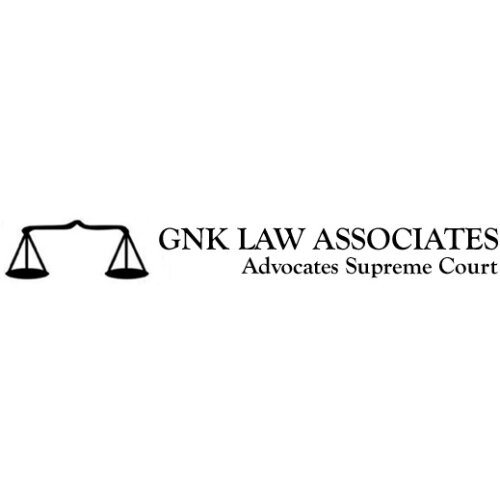Best Restructuring & Insolvency Lawyers in Delhi
Share your needs with us, get contacted by law firms.
Free. Takes 2 min.
List of the best lawyers in Delhi, India
About Restructuring & Insolvency Law in Delhi, India
Restructuring and insolvency laws in Delhi, India are designed to address financial distress in businesses and individuals, providing methods for debt resolution and, if necessary, facilitating an orderly winding up. The legal framework is primarily governed by national legislation but applies within the jurisdiction of Delhi through specialized tribunals and courts. The Insolvency and Bankruptcy Code, 2016 (IBC) is the cornerstone law in India for these matters, offering time-bound processes for resolving insolvency of companies, partnership firms, and individuals.
Why You May Need a Lawyer
Involvement in restructuring or insolvency processes can be complex and stressful, often involving significant legal risks and financial implications. You may need a lawyer if:
- You are a creditor seeking to recover dues from a business or individual.
- Your company is unable to pay its debts and needs to initiate insolvency proceedings.
- You want to understand your rights and options as a director, stakeholder, or employee of a company facing insolvency.
- You are considering restructuring your business to address financial or operational challenges.
- You wish to defend against insolvency proceedings initiated against you or your company.
- You are a prospective investor in distressed assets or wish to participate in the acquisition of an insolvent company.
Expert legal guidance ensures compliance with applicable laws, helps protect your interests, and improves the chances of a successful resolution.
Local Laws Overview
While insolvency and restructuring laws are mainly governed by central legislation, their application and enforcement in Delhi have specific considerations:
- The Insolvency and Bankruptcy Code, 2016 (IBC), is the primary law for insolvency and restructuring in India, applying to companies, limited liability partnerships, partnership firms, and individuals.
- The National Company Law Tribunal (NCLT) - Principal Bench in Delhi administers most corporate insolvency cases arising in Delhi and surrounding areas.
- The Debt Recovery Tribunal (DRT) in Delhi handles personal insolvency and asset recovery matters.
- The IBC provides for the appointment of insolvency professionals who play a critical role in managing the resolution process and restructuring plans.
- Delhi courts may be involved in certain interim matters or appeals related to insolvency proceedings.
- Certain local procedural rules and state-specific notifications may also impact how restructuring and insolvency cases are handled in Delhi.
Understanding the interplay of central and local mechanisms is important for effective resolution.
Frequently Asked Questions
What is the Insolvency and Bankruptcy Code, 2016 (IBC)?
The IBC is a comprehensive law aimed at consolidating and amending the laws relating to reorganization and insolvency resolution in India. It provides procedures for resolving insolvency for individuals, partnerships, and companies in a time-bound manner.
Who can file for insolvency in Delhi?
Creditors (both secured and unsecured) as well as debtors themselves can initiate insolvency proceedings under the IBC. This applies to companies, limited liability partnerships as well as individuals and partnership firms.
What is the role of the National Company Law Tribunal (NCLT) in Delhi?
The NCLT Principal Bench in Delhi adjudicates on corporate insolvency and restructuring matters arising within its jurisdiction. It handles bankruptcy petitions, settlement approvals, and liquidation orders for companies and LLPs.
How long does the corporate insolvency resolution process typically take?
The IBC mandates that the corporate insolvency resolution process (CIRP) should be completed within 180 days, with a possible extension of up to 90 days. In exceptional cases, timelines may be further extended by the tribunal.
What is a resolution professional?
A resolution professional is an insolvency professional appointed to manage the affairs of the debtor during the resolution process, coordinate with creditors, and prepare a resolution plan or suggest liquidation if resolution is not viable.
Can an individual file for bankruptcy in Delhi?
Yes, under the IBC, individuals (including sole proprietors and partners in a firm) can file for bankruptcy if they are unable to pay their debts. The procedures are regulated and administered through the Debt Recovery Tribunal in Delhi.
What are the consequences for company directors during insolvency?
During insolvency proceedings, the powers of the company’s board of directors are suspended and exercised by the resolution professional. Directors are required to cooperate fully with the process or face penalties.
Can a company continue operations during insolvency?
Yes, the company may continue as a going concern during the resolution process, unless the tribunal or resolution professional decides otherwise for specific reasons.
What happens if no resolution plan is approved?
If no resolution plan is approved within the specified period, the company may go into liquidation, meaning its assets will be sold to pay off creditors as per the order of priority set out under the law.
Is it possible to challenge an insolvency proceeding in Delhi?
Yes, parties aggrieved by the process or decisions may appeal to the National Company Law Appellate Tribunal (NCLAT) and, subsequently, to the Supreme Court of India on issues of law.
Additional Resources
If you are seeking further information or support regarding restructuring and insolvency in Delhi, consider the following resources:
- National Company Law Tribunal (NCLT) - Principal Bench, Delhi
- National Company Law Appellate Tribunal (NCLAT)
- Debt Recovery Tribunal (DRT), Delhi
- Insolvency and Bankruptcy Board of India (IBBI)
- The Delhi High Court for certain jurisdictional matters
- Professional associations like the Insolvency and Bankruptcy Professionals of India
- Legal aid cells and pro bono initiatives by the Delhi State Legal Services Authority
Consulting these bodies or reaching out to a qualified insolvency professional can help clarify your options.
Next Steps
If you believe you need legal assistance for restructuring or insolvency in Delhi, here is how you can proceed:
- Start by gathering all relevant documents, including financial statements, debt agreements, and correspondence with creditors or authorities.
- Consult a qualified lawyer or insolvency professional with expertise in Delhi’s legal environment.
- Discuss your objectives, whether they involve restructuring, protecting assets, or recovering dues.
- Understand the likely timeline, costs, and outcomes before initiating any formal action.
- Remain proactive and responsive throughout the legal process, fulfilling all requirements and providing information as required.
Early and informed legal advice can make a significant difference in the outcome of your restructuring or insolvency matter.
Lawzana helps you find the best lawyers and law firms in Delhi through a curated and pre-screened list of qualified legal professionals. Our platform offers rankings and detailed profiles of attorneys and law firms, allowing you to compare based on practice areas, including Restructuring & Insolvency, experience, and client feedback.
Each profile includes a description of the firm's areas of practice, client reviews, team members and partners, year of establishment, spoken languages, office locations, contact information, social media presence, and any published articles or resources. Most firms on our platform speak English and are experienced in both local and international legal matters.
Get a quote from top-rated law firms in Delhi, India — quickly, securely, and without unnecessary hassle.
Disclaimer:
The information provided on this page is for general informational purposes only and does not constitute legal advice. While we strive to ensure the accuracy and relevance of the content, legal information may change over time, and interpretations of the law can vary. You should always consult with a qualified legal professional for advice specific to your situation.
We disclaim all liability for actions taken or not taken based on the content of this page. If you believe any information is incorrect or outdated, please contact us, and we will review and update it where appropriate.














